Four legs good, two legs bad
Are you into equality? Do you believe in treating all people equally? How about animals? Are all animals equal in your world?
Every summer I visit the Cotswold Farm Park in Gloucestershire, UK. A parade of youngsters queue up eager to cradle a fluffy chick in their hands or chase after the runaway piglets. If the evidence of the purchasing habits in our supermarkets is correct, many of those happy families drive back through the countryside barely glancing at the huge sheds on quiet farmland crammed with serried rows of cages or pens where living creatures never see the light of day. They walk their dog, stroke their cat and then dig into their cheap chicken breast or pork chop without thinking twice about anything but the price…in monetary terms. Not the price of the life that the animal paid to be on their plate – it’s life in a cage.
Would the horse meat scandal have gained so much attention if the animal wasn’t graceful with a long mane and tail? People marched and protested for the end of chasing Mr Fox with his bushy tail. We bay for the blood of any shark which dares to harm man. All those inelegant beaked feathery creatures which can barely move in life but are so easy to cram down our children as cheap nuggets and make such a small dent in our food budget. The inequality of how we treat animals based on how cute or useful they are to us.
Some facts
- In Europe 700 million farm animals are confined in cages every year.
- Not only hens (in ‘enriched cages’), but pigs (in sow stalls and farrowing crates), ducks and geese (for foie gras production), quail and even rabbits are all farmed in cages.
- Rabbits are the most caged farm animal in Europe
What can you do?
On this Blog Action Day 2014, help end the inequality of how we treat animals. Think about how you shop for food. If you eat meat, or dairy products ask questions about the way it was raised and where it comes from. Join the ‘End the Cage Age’ campaign and support Compassion in World Farming.
Comments are closed.


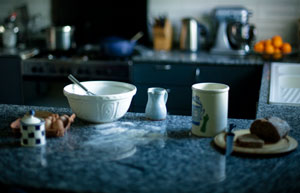







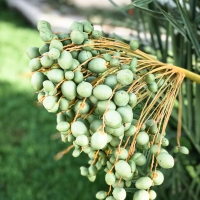
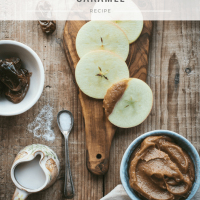




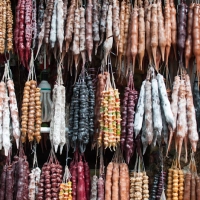
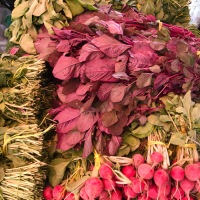



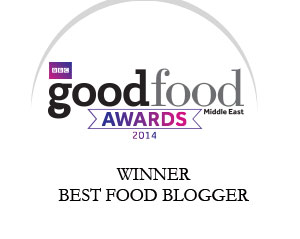



People have huge blinders, I guess, judging from the blank looks I get when I preach this (yeah, like a broken record). Luckily I live in a place where there are lots of wonderful options from folks raising animals in a good way.
The blank looks are astonishing really aren’t they Michelle.
Australian philosopher Peter Singer converted me to ethical animal consumption many many years ago. Fortunately, because of climate and space our larger animals have always roamed free. The poultry industry is heading in the right direction, consumer driven, albeit slowly
I’m very glad to hear this. There is so much grain-fed beef here from Australia. This is so unsustainable and means that animals are brought in from pasture. Thanks for commenting.
I shop local as much as I possibly can. I drive by the fields of cattle where my milk comes from, my eggs come from happy, free range hens reared by my organic vegetable box producer, and I buy as much local meat as I possibly can – fully traceable meat with low food miles. There’s a lamb in my freezer that lived in the field outside my house, hand delivered by the crofter who reared it. I know it had a good life, and I know I am in a minority choosing to shop local as much as I can. A very well written article, hopefully this will open up some eyes.
You are really lucky Elizabeth – most of our food is from a chain so long and tortuous its origins are completely obscured.
Thanks for an interesting & succinct post on this issue. People definitely have double standards around this. I eat meat & dairy but try to buy free range and organic as much as possible. These days when I eat in restaurants I often have a vegetarian meal because I feel it’s more ethical and sustainable, unless I know where they’ve sourced their food.
Unfortunately though it does tend to be more expensive to eat ethically, and for many people that is a genuine barrier.Hopefully if those of us who can afford to, keep buying free range etc. that will bring the prices down for others.
It’s not a cut and dried topic and most of us do the best we can making increasingly difficult and complex choices about the food we choose to buy. We eat less meat as buying more sustainably, humanely reared is expensive. Meat used to be a luxury though – and so it should be given the price to the animal and our planet. Thanks – really appreciate your comment. I hadn’t thought of the choices in restaurants in that depth. I avoid ordering unsustainable fish.
No indeed, very complex – but at least we are trying to figure it out.
Sally, I’ve referred back to your article with regards to a blog post I am compiling and notice that the End the Cage Age link doesn’t go anywhere. Just thought you’d want to know. x
Thanks Elizabeth – fixed now. Looking forward to reading your post.
So many important points here Sally. Like Mammje, I tend to eat vegetarian food when I’m out. I stopped buying burgers when BSE struck, and since then cook meat once a week, only free-range and organic or wild game. I buy organic, free range eggs and butter and other diary. We eat sustainably caught fish. I firmly believe that the more of us who do this, the better it is not just for the animals, but hopefully for those millions in the world still living below the poverty line. Well done for highlighting this.
I can’t add to this except to say that I’m amazed by how many people turn their noses up at wild game in horror. Would you rather eat a wild rabbit that has lived its days eating natural grass or those poor caged creatures doused with drugs and antibiotics? I know my answer.
I have a vegetarian friend who said that if she ate meat, she wouldn’t be that concerned about intensively farmed animals. From her perspective, killing the animal was the most cruel thing you could do to it and the experience it had through its life wasn’t going to make that reality any different.
Having that conversation has certainly helped to change the way I think about intensively reared livestock. I’ll always opt for British-reared meat because I at least know what the production involves (and by and large animal welfare laws in farming here are stricter than in much of the rest of the world), but I don’t eat meat with every meal for health, environmental and financial reasons. If you can afford the higher welfare meat, it’s worth the money on taste but once it’s on its way to the abattoir, as my friend would argue, they still share the same fate.
There are multiple perspectives on this issue and I appreciate you raising this. The relationship between domestic farm animals and man is a difficult one and I have sympathy with people who have chosen to be vegetarian or vegan – I have considered it myself as options for humanely reared and slaughtered meat become less available. My view is that domestic animals exist for food, we should give the a good life and treat them with respect and in exchange they feed us. Their deaths, as in life, should be as stress-free and humane as possible. Not all animal deaths are equal. I don’t understand your friend’s logic – that’s like saying that a child who grows up on a rubbish heap, malnourished and abused, has the same life as a more privileged one as we ultimately all die in the end. I know that life is not taken away, but the years in between could be of suffering and pain or the joy of living.
My shopping habits are pretty similar to yours. We all make difficult choices – but I do believe that deliberate choices including where that food comes from, can influence the bigger picture if enough of us do it. Thanks Simon.
I can’t really add to all of the wonderful comments here other than to reiterate how well-written this plea is. I have been a member of CIWF for more than 20 years and would urge others who care about the lives of the animals we collectively eat to do the same. They have wrought real change not only here in the UK but also put animal welfare on the agenda of other European countries. Thanks for writing this post.
Thanks Kellie – I agree that Compassion in World Farming have done great things. I think the end the cage age campaign is one of the most important ones to date.
What about all the pet rabbits, guinea pigs and the like cooped up in dirty cages across the country and dogs that are shut in tiny flats all day while their owners are out at work? In the UK, I suspect that many pets have far worse lives than much of the livestock bred for food.
You are probably right Anne – and the RSPCA can’t tackle all of these cases. The scale of abuse in factory farming for animals who die to feed us is why I focus on this. It’s not to say that we don’t abuse animals in a variety of different ways for different purposes (zoos, medicine etc.) and that it isn’t important. Thanks for raising this point.
I don’t have a problem with eating meat, but do believe that farm animals should be treated with respect and kindness. Fortunately here in Australia our cattle and sheep are largely pasture raised and people are becoming more aware of the inhumane way chickens and pigs are treated. I’ve just bullied my local butcher into sourcing some free-range pork by refusing to buy the stall reared meat any more.
Thank you so much for writing about this, Sally. This is such an important issue, particularly where we live. For many people, meat is so ingrained into their culture (whether geographic, or social) that they refuse to think about it objectively (this is not an excuse, merely an observation). Because it is often so difficult to trace the source of meat, I shifted towards a predominantly vegan diet a few years ago. I still eat dairy and meat sometimes, but only when I know its origins and background. My husband, who used to be an avid meat-eater, has also made conscious changes to his diet–he now sees meat as a treat, a luxury that is to be savored consciously. I wish more people would put some thought into their food.
Such a good point to make Sally. People have become totally disconnected from the animals that we eat, and how our appetite for their cheap flesh is driving horrendous farming practices. The fact that meat from ethically raised animals not fed on GM feed remains considerably more expensive sadly turns this issue into one that also highlights economic equality. it’s time that this stopped being a middle-class concern and became everybody’s concern.
Such a great informative post, dear sally! I grow a lot of foods myself, the rest I buy locally grown. It is very important to know for me what has happened to my veggies, meat aka fish, etc. x